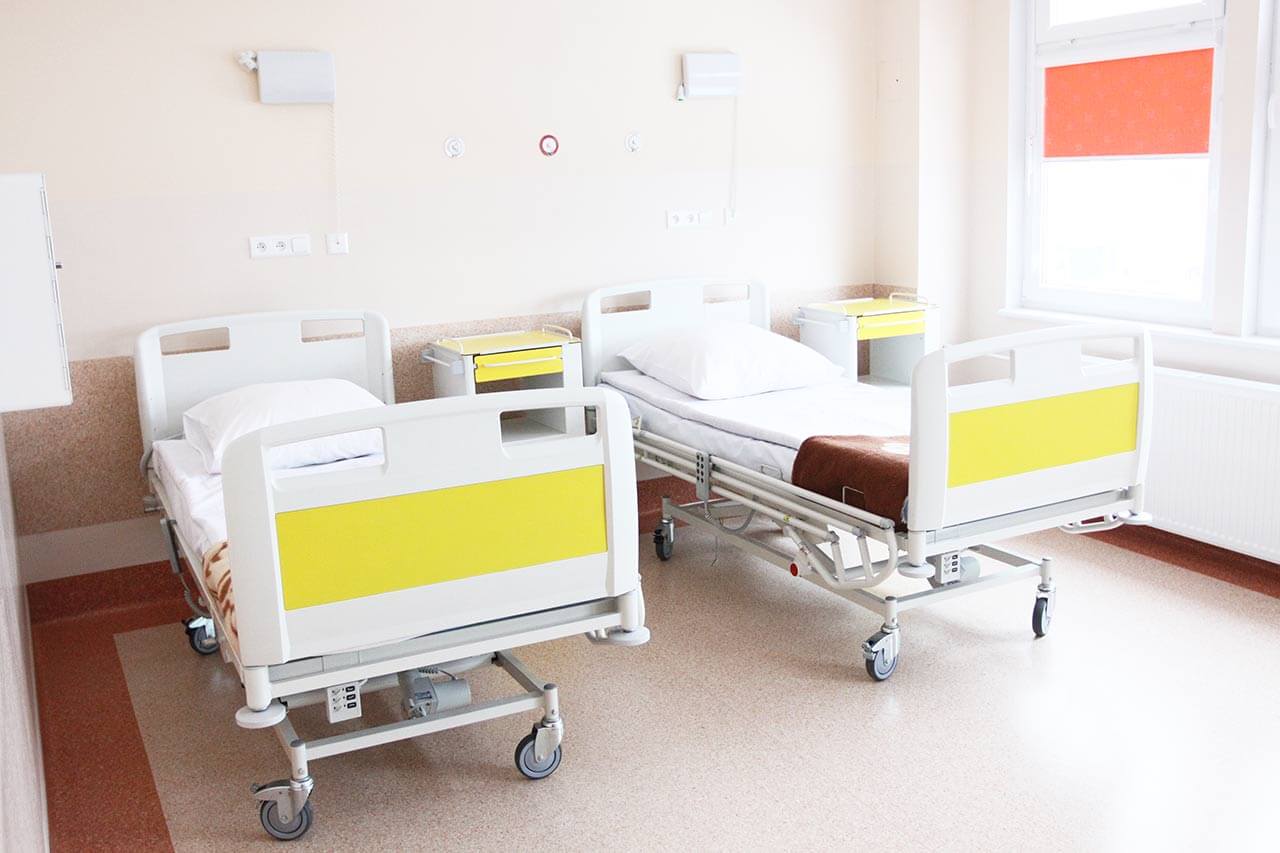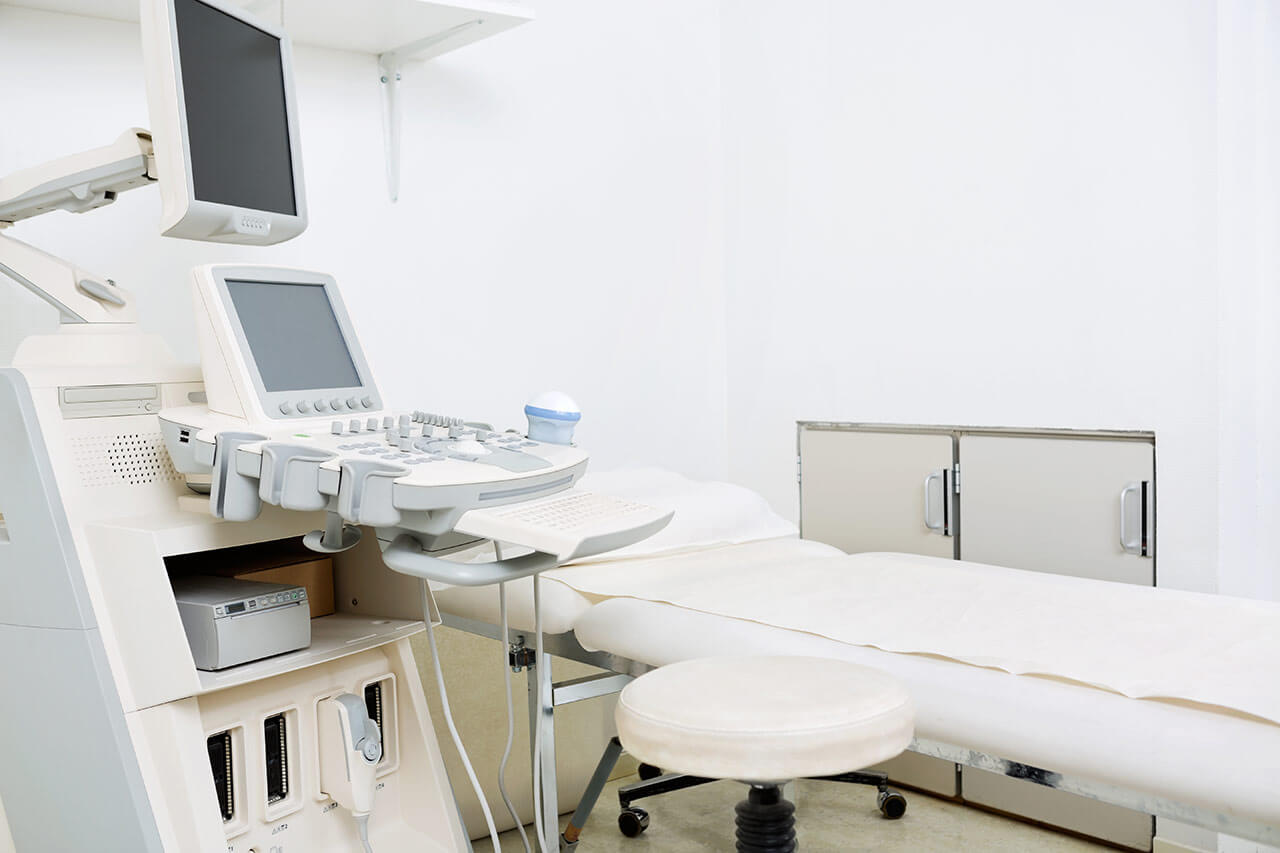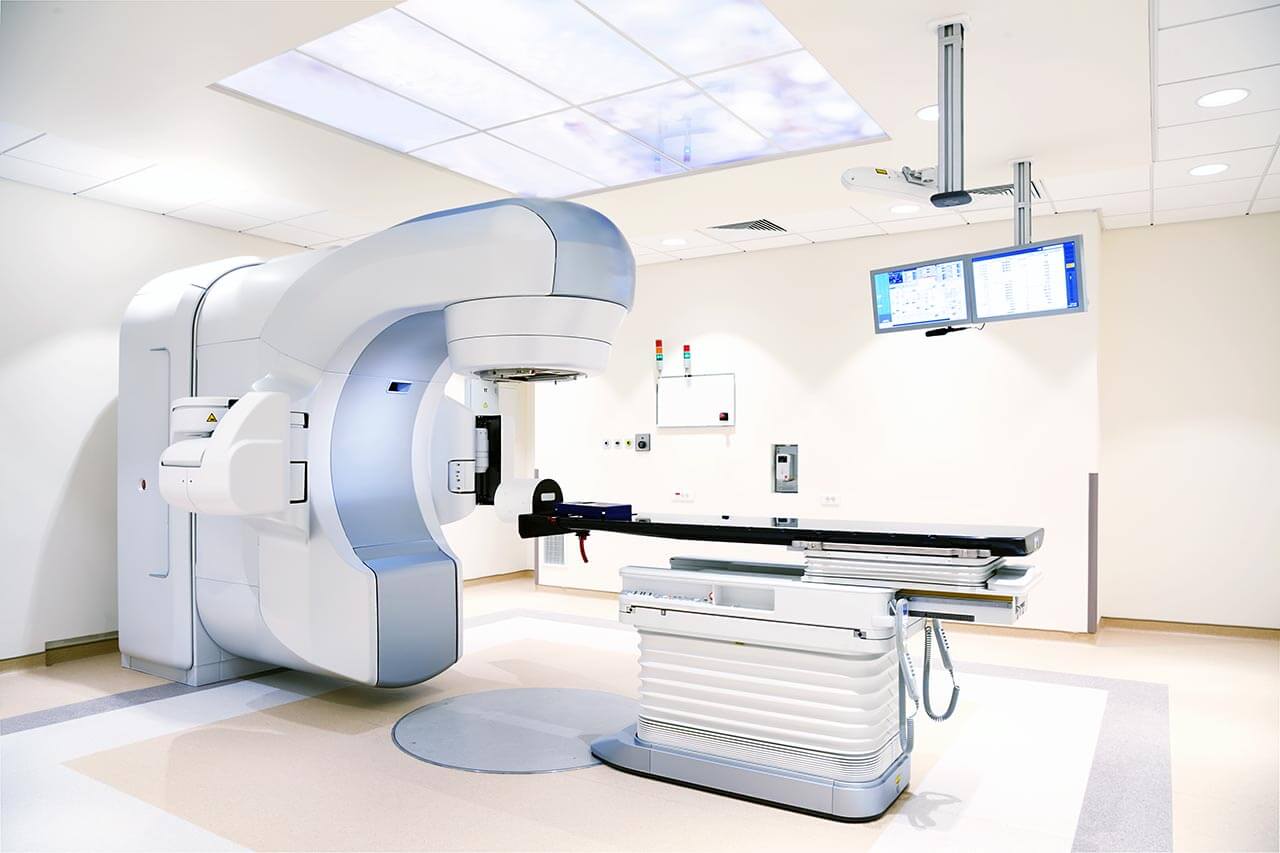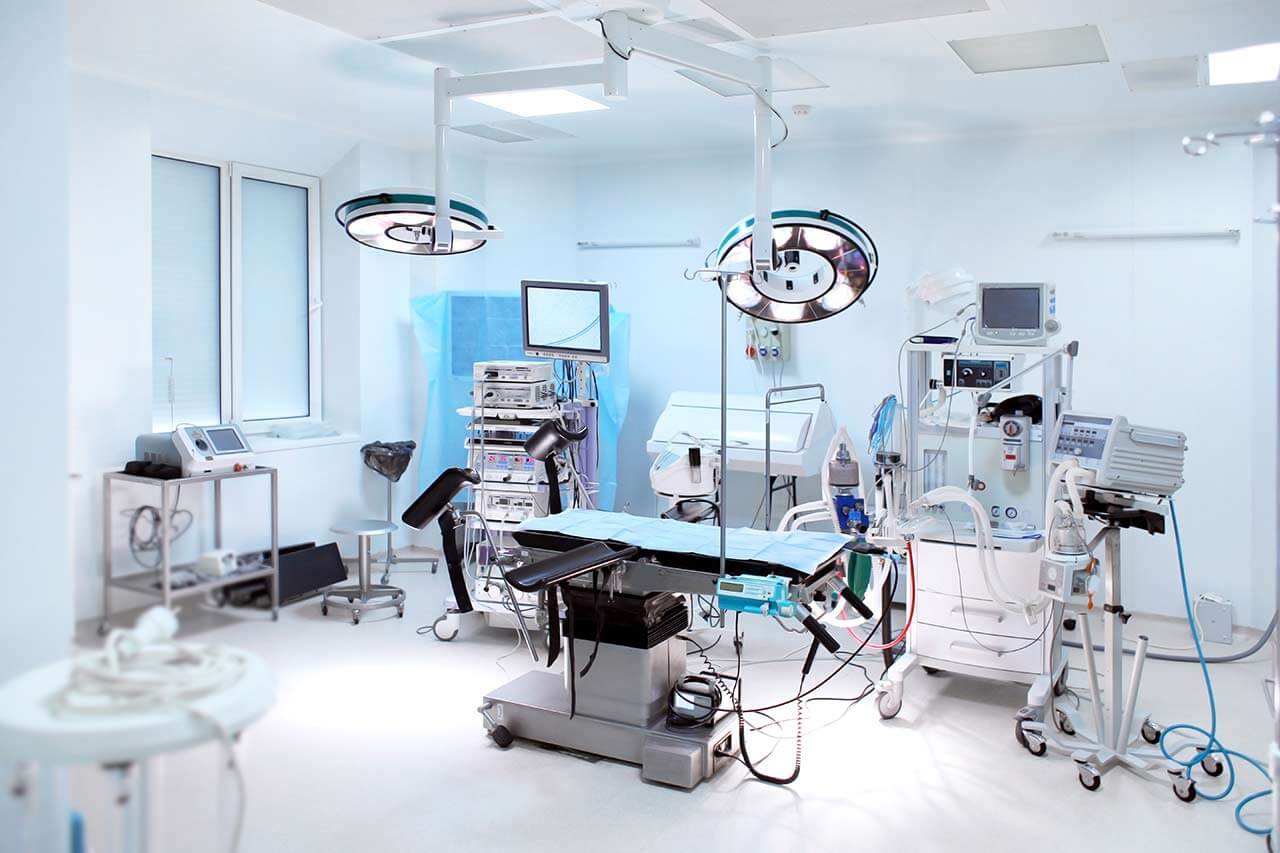
The program includes:
- Initial presentation in the clinic
- clinical history taking
- review of medical records
- physical examination
- laboratory tests:
- complete blood count
- general urine analysis
- biochemical analysis of blood
- inflammation indicators (CRP, ESR)
- indicators of blood coagulation
- tumor markers (CEA, CA19-9, CA125)
- gynecological examination
- ultrasound scan: pelvis, abdomen
- CT scan/MRI of the abdomen and pelvis
- preoperative care
- aa Vinci hysterectomy
- histological and immunohistochemical
examination of the removed tissues - symptomatic treatment
- control examinations
- the cost of essential medicines and materials
- nursing services
- full hospital accommodation
- explanation of future recommendations
How program is carried out
During the first visit, the physician will conduct a clinical examination and go through the results of the available diagnostic tests. After that, you will undergo the necessary additional examination, such as the assessment of liver and kidney function, ultrasound scan of the abdominal and pelvic organs, CT scan and MRI. Based on the results of an additional examination, the physician will clarify the stage of the oncological process, choose the surgical technique and the type of anesthesia.
Surgery with the da Vinci robot starts with general anesthesia. After anesthesia, the surgeon makes small incisions through which he inserts the manipulators of the da Vinci robot and a video camera into the pelvic cavity. Using manipulators, the doctor dissects the ligamentous apparatus of the uterus, ligates or coagulates the blood vessels and, finally, cuts off the uterus from the vagina. The video camera continuously transmits a three-dimensional image of the operating field in 12-fold magnification to the monitor. The uterus is removed through the vagina, and the vaginal stump is sutured with an atraumatic needle. The surgeon installs a drain into the abdominal cavity and finishes the operation.
Hysterectomy with the da Vinci robot allows not only to remove the uterus, but also to fix the preserved ovaries in the anatomical position. If radiation therapy is planned after the hysterectomy, the surgeon can dislocate the ovaries from the irradiation region and maintain their function. Excessive body mass, which usually complicates endoscopic surgery, is also not a direct contraindication to robotic intervention.
After the completion of the operation, you will be transferred back to the ward, under the supervision of the attending physician and nursing staff. Due to the minimal invasiveness of the operation and the short duration of general anesthesia, you will not need to stay in the intensive care unit for a long time.
Finally, the attending physician will evaluate the results of control examinations, schedule the date of discharge from the hospital and give you detailed recommendations for further follow-up and treatment.
Required documents
- Medical records
- MRI/CT scan (not older than 3 months)
- Biopsy results (if available)
Service
You may also book:
 BookingHealth Price from:
BookingHealth Price from:
About the department
According to the Focus magazine rating, the Department of Adult and Pediatric Gynecology, Obstetrics and Mammology at the University Hospital Duesseldorf ranks among the top German departments specializing in breast cancer treatment!
The department offers the full range of services in these medical fields. In the field of gynecology, it provides the diagnostics and treatment of all pathologies of the female reproductive system, including the gynecological problems in girls aged from 0 to 18 years. The department's obstetricians provide quality care for expectant mothers before, during and after pregnancy. The department's scope of activities also includes the management of high-risk pregnancies. The key focus of clinical activities is the treatment of oncological diseases of the female genital organs, including breast cancer.
The department is headed by Prof. Dr. med. Tanja Fehm. She is a highly qualified world-class specialist and, for more than 23 years, has been providing effective treatment for gynecological diseases, breast pathologies, as well as managing pregnancy and childbirth. Prof. Tanja Fehm has unique professional skills in treating female genital cancers, which she has gained not only at German hospitals but also abroad, in particular in the USA, England, and India. The professor is the author of more than 400 publications and the winner of numerous scientific awards. At the same time, she tirelessly masters the innovations of modern medicine, striving to provide her patients with the most advanced treatment.
For her outstanding achievements in the treatment of oncological diseases of the female genital organs and mammary gland, the department is certified by the German Cancer Society and also has a ClarCert DIN EN ISO 9001: 20015 certificate, which indicates the highest standards of medical care.
The process of cancer treatment begins with a comprehensive examination, which allows to determine the type of disease, its stage, precise localization, etc. Then the diagnostic results are discussed at an interdisciplinary tumor board, within which a customized treatment plan is developed. In many cases, doctors manage to avoid extensive and traumatic surgical interventions, since the surgeons of the department are fluent in minimally invasive techniques, by using which the tumor is removed through several small incisions. In addition, if desired, the patients of the departments can take part in clinical trials of innovative drugs that are not yet available for most patients. A necessary aspect of therapy is the help of qualified psychologists.
Another priority of clinical activities is mammology. The specialists in this field provide a comprehensive counseling, diagnostics and treatment of all benign and malignant breast diseases. Breast cancer treatment is carried out in interdisciplinary collaboration with all the necessary experts from the related fields. If possible, sparing treatments are used, but in the progressive stages, surgeons still have to resort to radical surgical interventions. In such cases, patients are offered modern reconstructive and cosmetic procedures for breast reconstruction.
The department also provides high-quality prenatal diagnostics, professional management of pregnancy, including high-risk pregnancy, as well as first-class obstetric services and postnatal care for both mother and baby. In case of the development of any complications in either mother or child, for example, premature birth, birth defects in the infant, emergency conditions, a specially trained team of specialists will provide the necessary medical care. The future mothers are offered four cozy delivery rooms equipped with modern delivery beds, delivery chairs, exercise balls and baths for water childbirth. The department also offers various methods of anesthesia, for example, acupuncture, homeopathy and aromatherapy before and during childbirth, epidural anesthesia.
The main clinical focuses of the department include:
| Adult gynecology |
|
| Pediatric gynecology |
|
| Mammology (diagnostics and treatment of breast cancer, benign diseases) |
|
| Obstetrics |
|
Other medical services |
Curriculum vitae
- 1990 - 1997 Study of Human Medicine at the Friedrich-Alexander University Erlangen.
- 1998 Doctoral Degree.
- 1998 - 1999 Intern, Department of Gynecology, University Hospital Erlangen.
- 1999 - 2001 Research Fellow at the Cancer Immunobiology Center, UT Southwestern Medical School, Dallas, Texas, USA.
- 2001 Appointed as an Associate Professor at the Cancer Immunobiology Center, UT Southwestern Medical School, Dallas, Texas, USA.
- 2002 Assistant Physician, Department of Gynecology, University Hospital Erlangen.
- 2002 - 2005 Training for a Medical Specialist, Department of Gynecology, University Hospital Tuebingen.
- 2005 Habilitation in Gynecologic Oncology.
- 2005 Appointed as a Senior Physician, Clinical Manager at the Section of Translational Gynecology at the Department of Gynecology, University Hospital Tuebingen.
- 2006 Visiting Professor, Prof. Dr. med. G. Sledge, Breast Cancer Research Center, University of Indianapolis, Indiana, USA.
- 2006 Additional qualification in the field of "drug therapy for tumors".
- 2007 Visiting Professor, Prof. Dr. M. Cristofanilli, Breast Cancer Center, Houston, USA.
- 2009 - 2012 Leading Senior Physician, Gynecologic Oncology.
- 2009 Additional qualification in Palliative Care.
- 2010 Specialization in Gynecologic Oncology.
- 2011 Executive Board Member of the Comprehensive Cancer Center Tuebingen.
- 2012 Visiting Professor at the Gynecology Center, University College, London Hospital, London, England (Prof. Widschwendter), as well as at the Galaxy Care Laparoscopy Institute, Pune, India (Dr. Puntambekar).
- 2012 Specialization in Special Obstetrics and Perinatal Medicine.
- 2012 Invitation to the position of W3 Professor in Gynecology and Obstetrics, Department of Gynecology, University Hospital of Würzburg, as well as an invitation to the position of W3 Professor in Gynecology and Obstetrics, Department of Gynecology, University Hospital Duesseldorf.
- 2012 Elected as a Representative of the Association of Gynecologic Oncology (AGO e.V.).
- 2013 Head of the Department of Adult and Pediatric Gynecology, Obstetrics and Mammology at the University Hospital Duesseldorf.
Memberships
- Representative of the Association of Gynecologic Oncology (AGO).
- Representative of the Translational Research Section of the Association of Gynecologic Oncology (AGO).
- Member of the Research Group on the Study of the Ovaries and Breast (Studienleitgruppe Ovar und Mamma).
- Active Member of the Mammology Section at the Association of Gynecologic Oncology (AGO).
- Member of the Research Committee of the German Society of Gynaecology and Obstetrics (DGGG).
- Editorial Board Member of Onkologie and Senologie Journals.
- Curator of the German Society of Gynaecology and Obstetrics (DGGG).
- Advisory Board Member of the Comprehensive Cancer Center Tuebingen.
Awards
- 2002 Poster Prize (Posterpreis) of the German Cancer Society.
- 2002 and 2004 Merit Award of the American Society of Clinical Oncology (ASCO).
- 2005 Teaching Award in Gynecologic Oncology.
- 2006 2nd Scientific Prize of the Society of Senology.
- 2009 Annual Scientific Busenfreund Prize of the Mammazone Association e.V.
- 2011 Poster Prize (Posterpreis) in Senology.
Photo of the doctor: (c) Universitätsklinikum Düsseldorf
About hospital
According to the authoritative Focus magazine, the University Hospital Duesseldorf ranks among the top Germany hospitals!
The hospital is an excellent example of a combination of high-quality health care, research and teaching activities. With more than 50,000 inpatients and about 300,000 outpatients every year, the hospital is one of the largest and most prestigious medical institutions in Germany and Europe.
Modern, safe and sparing diagnostic and therapeutic methods guarantee effective treatment of various diseases and their consequences. All therapeutic processes are based on an interdisciplinary approach, which provides comprehensive medical care and optimal treatment result. Obviously, one of the key roles in the successful clinical practice of the medical institution is played by a highly qualified medical personnel, which consists of the best world-class doctors. The hospital also has a special advantage due to the structured equipment with the innovative medical technologies.
The hospital presents almost all fields of modern medicine. Special attention should be given to such focuses as oncology and hematology, stem cell transplantation, neurosurgery and neurology, urology, obstetrics and gynecology, hepatology, kidney transplantation, vascular surgery, cardiac surgery, pediatric surgery, pediatric oncology, etc.
In addition to the outstanding quality of medical services, the hospital guarantees each patient an attentive care, friendly atmosphere, as well as sensitive and respectful attitude.
Photo: (с) depositphotos
Accommodation in hospital
Patients rooms
The patients of the University Hospital Duesseldorf live in comfortable single, double and triple rooms. The patient rooms are made in bright colors and modern design. The room furnishing includes an automatically adjustable bed, a bedside table, a wardrobe, a telephone, a multimedia device (TV, radio, Internet access), a table and chairs for receiving visitors. To use the phone and multimedia device, the patient should have a special chip card, which can be purchased at the reception. In the pediatric departments multimedia device can be used for free.
Meals and Menus
The patients of the hospital are offered a varied, tasty and healthy diet. Every day there are three menus to choose from for adults and four menus to choose from for children, while it is possible to develop an individual menu. When pre-ordering, the international patients may have dishes of various cuisines of the world, for example, Asian and African cuisine. If a patient needs a diet in accordance with the clinical indications, he will be provided with a special diet menu, including drinks.
Every day, the nurses inform the kitchen workers about the patient wishes using an electronic data processing system. Immediately before serving food, there are printed special cards, which indicate for which patient this or that dish is intended.
Also, the hospital houses a cafeteria with a rich selection of delicious, healthy dishes, snacks and drinks.
Further details
Standard rooms include:
Religion
Christian priests are available for the patients at any time. Representatives of other religions may be requested at any time.
Accompanying person
Your companion may stay with you in your room or at a hotel of your choice during the fixed program.
Hotel
You may stay at the hotel during the outpatient program. Our employees will support you for selecting the best option.
The hospital offers a full range of laboratory tests (general, hormonal, tests for infections, antibodies, tumor markers, etc.), genetic tests, various modifications of ultrasound scans, CT scans, MRI and PET / CT, angiography, myelography, biopsy and other examinations. Treatment with medications, endoscopic and robotic operations, stereotaxic interventions is carried out here, modern types of radiation therapy are also used. The hospital offers patients all the necessary therapeutic techniques.
- Dermatosurgery
- Skull base surgery
- Gastric bypass and bandage
- Removal of lung metastases
- Interventions on the spine
These are skin cancer (including melanoma), head and neck tumors, pathological changes in the chest (including funnel chest), obesity, liver diseases, HIV and other infectious diseases, varicose veins, aortic aneurysm, carotid artery stenosis, joint diseases and other pathologies.
- Dermatology
- Oncology
- Otorhinolaryngology
- Endocrinology and diabetology
- Orthopedics and traumatology
Over 800 highly qualified physicians work at the hospital.






